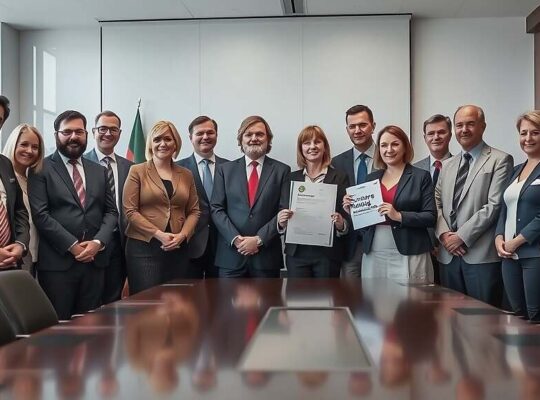The Robert Koch Institute (RKI), Germany’s leading public health body, faces a precarious future for its Integrated Genomic Surveillance (IGS) program, a critical tool for pathogen monitoring and pandemic preparedness. The Federal Ministry of Health (BMG) is reportedly planning to cease federal funding for the project at the end of 2025, a move drawing sharp criticism from scientists and laboratory professionals.
Since 2021, the BMG has invested approximately €18 million in the “conceptualization and establishment of a pathogen-independent IGS” allowing for comprehensive genomic analysis of disease outbreaks. While a Ministry spokesperson confirmed the funding is time-limited – a standard practice for research projects – the abrupt termination raises serious concerns about the future of this vital capability.
The RKI’s ability to absorb the workload and maintain the ongoing operation is questionable. The institute’s annual budget, roughly €192 million, is largely committed to personnel and mandated public health duties, leaving only a small, flexible portion available for research and development. This constrained financial landscape casts doubt on the institute’s capacity to sustain IGS with internal resources.
The decision has triggered a wave of criticism from the scientific community. Michael Müller, Chairman of the Accredited Laboratories in Medicine (ALM), described the move as a “severe setback” that puts Germany at risk of falling behind international standards. He emphasized the necessity of genomic surveillance for early detection and understanding of infectious disease spread, a cornerstone of modern public health response.
Scientists from the National Reference Centers echoed these concerns, with Stefan Niemann, scientific director of the Reference Center for Mycobacteria, labeling the impending funding loss as “devastating”. He warned that years of painstaking network building and capacity expansion could be “irreversibly destroyed” and that accumulated progress could be undone. The IGS has been instrumental in providing crucial insights into the development of antimicrobial resistance and the dissemination of significant pathogen strains.
The potential dismantling of these structures risks significantly weakening Germany’s influence in European and international health research and preparedness. While the BMG maintains that IGS remains “an important element of a forward-looking surveillance system for pathogens” and pledges to explore options for future development and financing in collaboration with the RKI, no concrete commitments have been made. This ambiguous statement fails to alleviate fears that vital scientific infrastructure risks being sacrificed for short-term budgetary pressures, ultimately jeopardizing Germany’s ability to respond effectively to future health crises.












